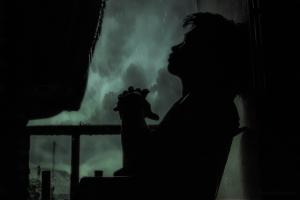 Several of us from the Mormon Mental Health Association are trying to gather some resources in case any wards/stakes affected by today’s school shooting in Florida could use some extra support. There are many resources already available and we will link to a lot of those. At the same time, there may be some particular suggestions from a Mormon lens that might also be helpful. Thank you Randy Moss, Ethan Bratt and Robert Allred for contributing your thoughts and resources to this list.
Several of us from the Mormon Mental Health Association are trying to gather some resources in case any wards/stakes affected by today’s school shooting in Florida could use some extra support. There are many resources already available and we will link to a lot of those. At the same time, there may be some particular suggestions from a Mormon lens that might also be helpful. Thank you Randy Moss, Ethan Bratt and Robert Allred for contributing your thoughts and resources to this list.
1. Importance of grief and allowing for the process of grieving – which will look different for every single person. Talk of forgiveness is usually premature and can wait until people have had a chance to recover. Some will want to talk and share feelings… others will become quite and introverted. Don’t encourage the suppression of anger. Find appropriate ways to be angry at everybody including God. We don’t want to censor people’s feelings. It is ok for some people to be angry with the perpetrator, for others to be compassionate, and for others to not want to think about the perpetrator at all. While striving to reach a Christlike place with those who do evil is always the goal, no one is wrong for where they are at right now. We all have our own path to walk towards that ideal.
2. Creating ongoing spaces for people to gather and be able to share or just be in community (both within the ward bounds and also in the larger community). The church grounds can be made available for candle vigils by local leaders.
3. Clear understanding of who is positioned in which callings to be able to help in which specific ways. Having some emergency meetings to organize roles is usually time well spent. Most wards already have emergency plans in place.
4. Educational meetings for parents with information about kids at all developmental ages. Things they may expect while kids deal with trauma is information they are going to want access to.
5. Group support meetings for the high school and middle school aged kids. They are all in the YM/YW program after all… so they will know each other.
6. Vet official talks from main leaders over the pulpit by mental health professionals who are trained in trauma to make sure they are trauma-informed. We don’t want to unintentionally hurt with things that are said that we may not realize are inappropriate at certain times.
7. Having local resources you can refer to and ask for help from that work with trauma services. Although LDS Services may have local providers… in these situations we want to opt for providers who specialize in trauma care.
8. Tap into national resources – including a national hotline for these kinds of disasters (some linked to here).
9. Possibly creating a ward Facebook page that will share resources and information.
10. Trauma informed training to men who will be giving blessings… again just to help them have language resources.
11. Education in regards to platitudes not being generally helpful in these situations and what some common ones are in Mormon language. (i.e. They are in a better place. Heavenly Father needed them on the other side). Let the people who are grieving decide what doctrinal truths are helpful to them. Instead, be a listening ear and resist the temptation to “make things better.” Listening and grieving with someone is the best thing you can do.
12. Some MMHA members are willing to offer trauma-informed consultations if anyone is interested in contacting us.
13. Offer self-care tips for those who will be helping. Watch for compassion fatigue that leaders and helpers may be experiencing.
14. Assessing for costs and making sure that people are taking advantage of federal/state funding – I’ve noticed that sometimes church leaders don’t always think about these. Helping victims fill out paperwork and access resources can be very helpful and something that a compassionate service leader or the Relief Society counselor in charge of literacy can help with.
15. Making sure that people are donating to sources that are legitimate.
16. Offer support to educators who may work in the school system affected. They often feel lots of responsibility for the kids in their care and are at risk for survivors guilt.
17. Be aware of what survivors guilt looks like and offer education for the teens.
18. Since elementary school kids and middle school kids are also usually put on lockdown… they need trauma support as well.
19. Don’t use mental health labels like PTSD prematurely.
20. After initial few days, don’t stop normal events or activities (parties, dances, etc). Don’t turn everything into protracted mourning or shooting oriented remembrance. Include the families affected as to what types of remembrances would be most helpful for them.
https://www.samhsa.gov/find-help/disaster-distress-helpline
https://store.samhsa.gov/shin/content/KEN01-0093R/KEN01-0093R.pdf
https://onedrive.live.com/view.aspx?resid=597D351C3EC5A484!1001&ithint=file%2cdocx&app=Word&authkey=!AMWIgIYuBJdwAUc
Natasha Helfer Parker, LCMFT, CST runs an online practice, Symmetry Solutions, which focuses on helping families and individuals with faith concerns, sexuality and mental health. She hosts the Mormon Mental Health and Mormon Sex Info Podcasts, writes a regular column for Sunstone Magazine, is the current president of the Mormon Mental Health Association and runs a sex education program, Sex Talk with Natasha. She has over 20 years of experience working with primarily an LDS/Mormon clientele.












